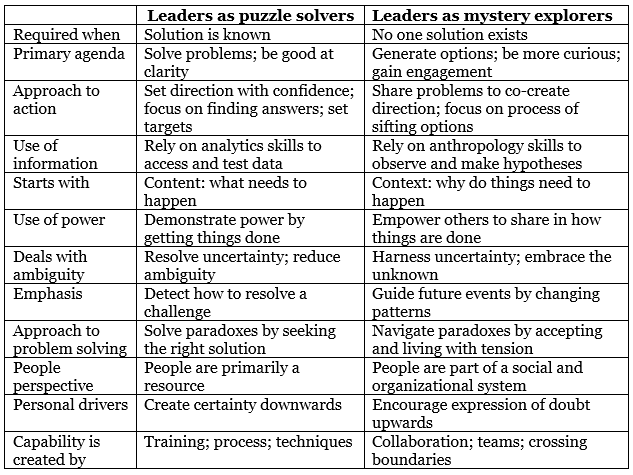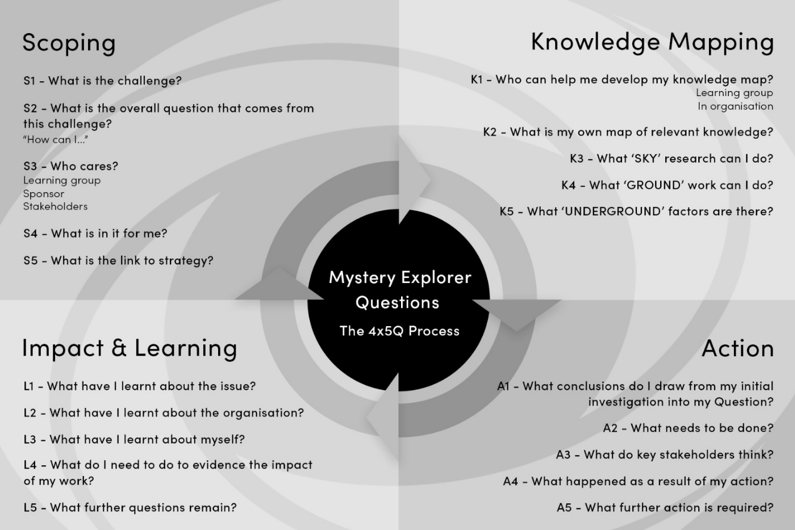Post-pandemic leadership: exploring mysteries or solving puzzles?
- 5 Min Read
HRD Thought Leader Dave Ulrich outlines pressing considerations around post-pandemic leadership, and the impact on organisations
- Author: Dave Ulrich
- Date published: Apr 29, 2021
- Categories

The post-pandemic is either with us or soon to come. Many leaders offer insights on the new normal for the world of work: hybrid work settings, digitally enabled work processes, and agile organisational actions. We are somewhat hesitant to predict a new normal given the incredible uncertainty of the 2020–2021 crises, where few would have predicted the pandemic, civic injustice, economic granularity, political discord, emotional disorders, or other challenges.
We also recognize that this people/organisation mélange of crises provides an opportunity for significant transformation of the human capital agenda for talent, leadership, organization, and HR.
Since we are in the business of observing, studying, and advising leaders, we want to help leaders better lead while they may not clearly know the context (e.g., hybrid, digital, agile, etc.) in which they do so.
With others, we have crafted lists of post-pandemic leadership skills that may help leaders lead, but how do leaders apply these skills when a new normal is not predictable? The ability to lead from a position of not knowing will be the post-pandemic leadership differentiator for the future.
Often people turn to their leaders to find answers to organisation questions: what is our organisation’s purpose (vision, mission, strategy, goals)? How do we deliver on this purpose (ensure accountability, teamwork, change processes)?
How do we help our people do their best (build competence, commitment, and experience)? How do we create the right culture to help our organization succeed in the marketplace?
Post pandemic logistical puzzles grab leaders’ attention, but perhaps in the unknowable future, leaders will be less often tasked with answering these urgent questions and more challenged with asking the right questions. Asking thoughtful questions often:
- Shape agendas more than providing smart answers does.
- Increase rather than limits possibilities.
- Engage others in discovering options.
- Allow for continuous learning and adaptation.
Leadership curiosity or the ability to explore options and ask good questions may be more important than total clarity in an unknowable normal. Exploring options or mysteries may be the path to wisdom and insight rather than intellectual cleverness, problem solving, or questions answering.
Adapting Gregory Treverton’s thoughtful distinction between puzzles and mysteries (and Malcolm Gladwell’s use of this typology), we suggest that post-pandemic leadership puzzle-questions are out to find clarity or a right answer; however, leadership questions born out of curiosity raise alternatives.
Crossword puzzles have a solution that requires problem-solving ability, and for those who are the best puzzle solvers, they learn the methods, short-cuts, and techniques. Curiosity leads to inquiry into mysteries that cannot always be solved but can be explored in order to make progress.
Post-pandemic leadership may be more about anthropology and curiosity rather than analytics and solutions. Let us summarise in figure one how leaders can be more oriented to curiosity rather than clarity.
Figure one

Asking the right leadership questions
To help leaders become mystery explorers through increasing curiosity, we suggest a typology for asking the right questions (see figure two). This can be used collaboratively with teams working on strategic or organisational transformation challenges.
- Scoping questions emphasise the context about the leadership challenge (e.g., defining a purpose, creating a plan for execution, enabling employees, building the right culture).
- Knowledge mapping identifies those with information to respond to leadership challenges.
- Action refers to possible steps forward.
- The impact and learning area ensures a cycle of continuous improvement.
For each of these four categories, we have proposed five questions that leaders might ask to demonstrate curiosity and to emphasize exploring mysteries more than solving puzzles (see figure two).
Figure two:
Questions to discover the future: The 4x5Q Process

Case study of leadership through questions
A leading care sector organisation faced significant transformational challenges. Its reputation was based on human values and care for the elderly in its homes and communities. However, the introduction of new technologies had lagged behind innovations in the market.
Multi-site locations led by local leaders had developed multiple different practices and systems. The CEO wanted to drive streamlined, sustainable transformation that would extend beyond simply digitizing the business. Executives recognized an opportunity to use the 4x5Q typology to drive this change and help leaders simultaneously develop their leadership capability.
Leaders were grouped into teams and briefed by an executive on the three-year business plan. They then scoped a leadership question to research and address over a six-month period.
Questions ranged from the more strategic (“How can I understand the changing market for later life care and use this intelligence to influence future strategies?”) to the more operational (“How can I engage my team to embrace the introduction of new technologies to support our service delivery?”).
Team members supported each other as they developed their research inquiry, which was conducted both within the business and externally. This meant leaders had to commit time and effort to such future-focused leadership challenges despite the reactive challenges of supporting residents and staff through and beyond the most demanding of times due to the pandemic.
The process of asking questions increased variety and helped this company make progress.
Conclusion
No one doubts that leaders matter in emerging from the 2020–2021 crises. To become effective, leaders in this unknowable normal need to move beyond solving puzzles to exploring mysteries by being curious. The question framework we offer may help leaders lead into the future.
Contributors:
Richard Hale, founder.









